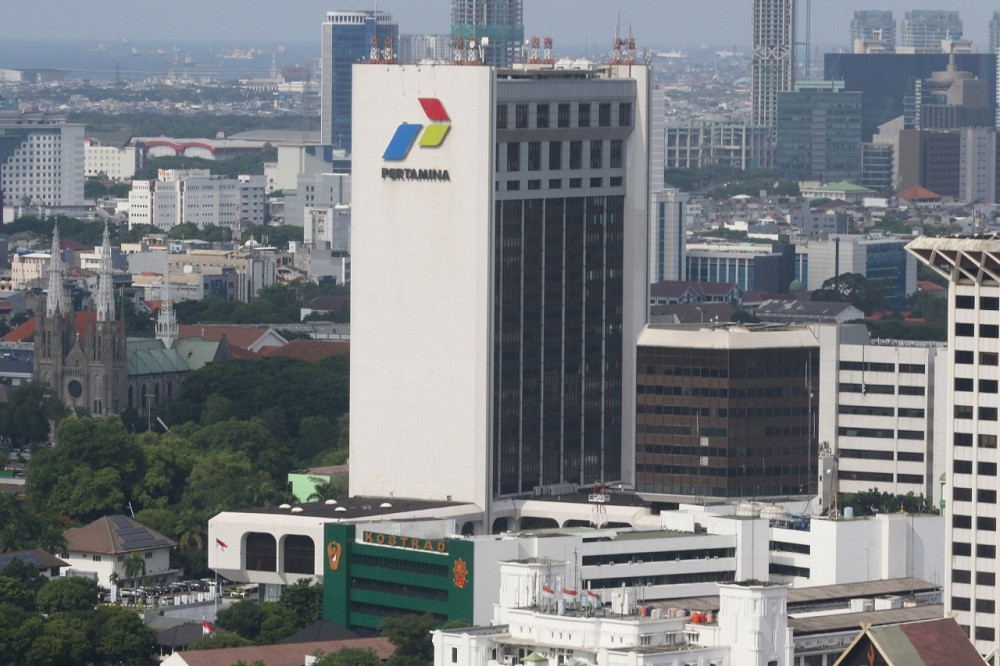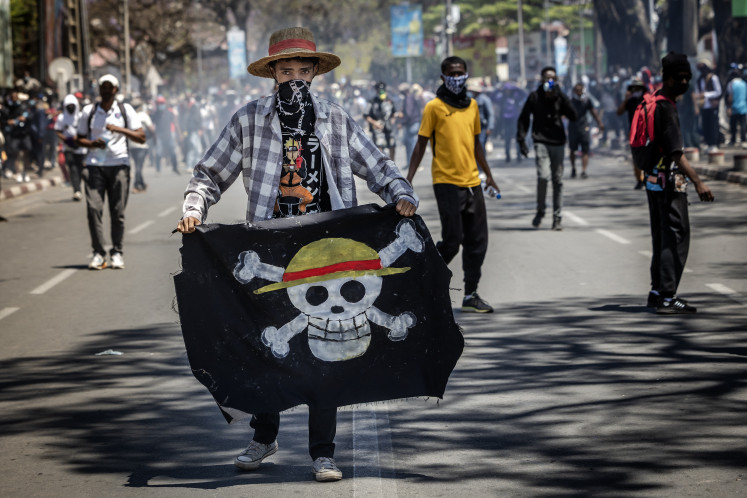Popular Reads
Top Results
Can't find what you're looking for?
View all search resultsPopular Reads
Top Results
Can't find what you're looking for?
View all search resultsIndonesia’s SOEs reforms: How Chinese are they?
Like China, Indonesia has gradually reformed its SOEs to address mounting SOE losses, whether because of corruption or poor business judgment.
Change text size
Gift Premium Articles
to Anyone
I
ndonesian state-owned enterprises (SOEs), unlike Chinese SOEs, rarely make global headlines. But over the last two years, Indonesia’s SOE reforms have been groundbreaking and deserve credit.
On April 30, the Indonesian SOEs Ministry announced that 14 SOEs and their subsidiaries would go public. The goal is to expose these SOEs and subsidiaries to market competition to force them to be more efficient and improve their financial performance. This release came less than a year after the ambitious restructuring of 142 SOEs into 107. The remaining 57 SOEs may be restructured within the next few years.
While this will not be the first time Indonesian SOEs go public, such a large number of government-directed SOE corporate actions are unprecedented in Indonesia.
What is Indonesia’s approach to SOE reform? Why have these reforms just recently manifested when the first Indonesian SOEs came about nearly 50 years ago?
At a glance, it seems that the SOE reforms are just following the logic of making money. But if we analyze the trend of the country’s SOE reforms, we will realize that they are modeled after China’s policy of gai zhi (transforming the system).
Gai zhi is China’s second set of SOE reforms, which began after Deng Xiao Ping’s South China tour in 1992. The system was devised to solve China’s failed first set of SOE reforms because of rampant corruption among SOE managers and mounting losses. The increased autonomy of SOE managers and a lack of government supervision created a moral hazard for these managers, who stood to benefit personally at the expense of the SOEs.
In 1997, the 15th National Congress of China adopted a massive privatization policy under the slogan “grasp the large, let go of the small”. It saw debt restructuring, public offerings and liquidations of SOEs; the establishment of SOE holding companies; and joint ventures involving SOEs and foreign enterprises, among other initiatives.
While the economic output of Indonesian SOEs is significantly smaller than that of Chinese SOEs, the scale of restructured Indonesian SOEs is as large, in relative terms, as that of Chinese SOEs. Indonesia’s approach to SOE reform is essentially similar to the Chinese gai zhi.
Like China, Indonesia has gradually reformed its SOEs to address mounting SOE losses, whether because of corruption or poor business judgment. Indonesia has also seen the establishment of SOE holding companies (e.g., Indonesia Financial Group in the financial services industry and Bio Farma in the pharmaceutical industry) and joint ventures between SOEs and foreign enterprises for infrastructure development (e.g., PT Kereta Cepat Indonesia China). On top of public offerings, the SOEs Ministry has announced debt restructuring for 19 SOEs and the liquidation of 14 SOEs.
On April 2, Indonesian SOEs Minister Erick Thohir visited the vice chairman of the Chinese State-Owned Assets Supervision and Administration Commission, Ren Hong Bin, to increase collaboration between Indonesian and Chinese SOEs. This visit will result in a stronger convergence toward the Chinese gai zhi model in Indonesia in the coming years.
Indonesia has recently manifested its SOE reforms because of the urgency of the Joko “Jokowi” Widodo administration’s key agenda: infrastructure development. Under the Jokowi administration, Indonesian SOEs have been undertaking large-scale infrastructure projects – from financing (by state-owned banks) to construction and operation.
Indonesian SOEs carry both the commercial objective of earning a profit and a special mission to provide public goods and services for the greatest welfare of the people. This special mission means that Indonesian SOEs develop infrastructure projects, especially in critical sectors, at a lower cost than their private counterparts. The key agenda is to accelerate infrastructure development, whether or not the project is price competitive – a mission that privately owned enterprises could not afford.
Reforming Indonesian SOEs is key to delivering the Jokowi administration’s infrastructure development goals. With uncompetitive pricing in projects, Indonesian SOEs may be haunted by non-performing loans. This dualistic function of Indonesian SOEs – profit and public service – is endemic to Chinese SOEs as well, which have engineered China’s large-scale infrastructure and economic development. But it is this dualistic function of Chinese SOEs that has allowed China to emerge as the miracle nation.
The Jokowi administration seems eager to recreate the Chinese miracle – which brought millions out of poverty – to achieve a high growth rate across the Indonesian archipelago. Following Chinese SOEs’ undertakings in large-scale infrastructure will also mean following China’s SOE reforms. The “less is more” and “go global” policies are two examples of how Indonesia’s SOE reforms have turned Chinese.
Following a similar trend to gai zhi, the number of Indonesian SOEs continues to decline. The SOEs Ministry has announced that SOEs will continue to merge and acquire others to form SOE holding companies and that weak SOEs will continue to be restructured or liquidated by the asset management SOE, PT Perusahaan Pengelola Aset (Persero).
With a larger pool of assets, Indonesian SOEs aim to “go global” and capture world markets.
Lately, there has also been a tendency to allow privately owned enterprises to develop infrastructure, whether through public-private partnerships or direct appointment. This is a promising trend because private capital can bridge the funding gap when the state budget is constrained. It is the same promise China made when it liberalized its economy, but China has been criticized for its failure to deliver on this promise because of the public sector’s tendency to advance while the private sector retreats.
Indonesia’s SOE reforms and China’s gai zhi have strikingly similar patterns. But given that Indonesia and China have inherited very different political systems, it is worth observing how Chinese-style gai zhi will materialize in Indonesia.
Will gai zhi provide what Indonesia needs in terms of miraculous economic development? This test will determine how Chinese Indonesia’s SOE reforms will be.
***
The writer is a banking and finance lawyer at Ginting & Reksodiputro in association with Allen & Overy. The views expressed are his own.










